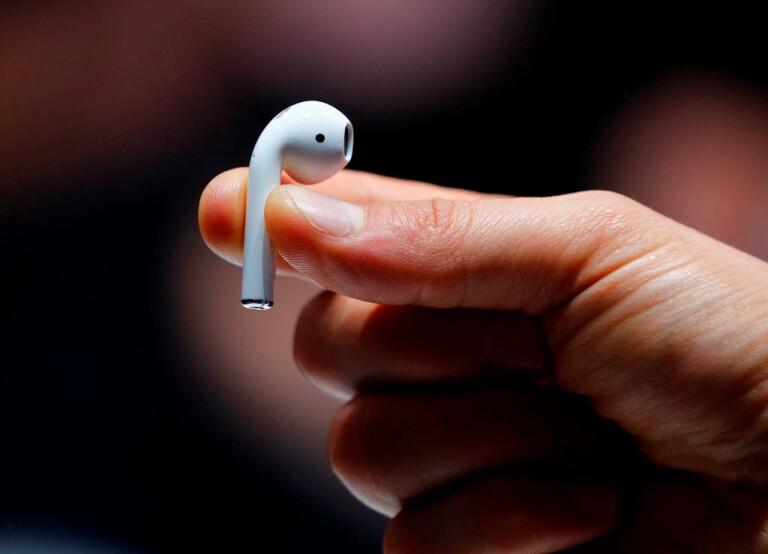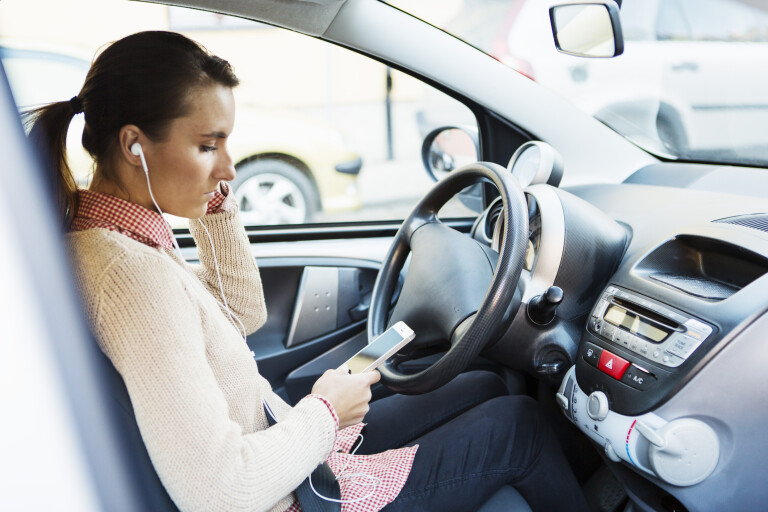
The first time I saw Apple’s new wireless AirPods, I snorted out loud and thought ‘no one is EVER going to wear those geeky looking things.’ Guess that’s why I’m as poor as a church mouse, then…
As their popularity has increased, though, I see more and more drivers wearing them while they’re driving, and it got me wondering – is it legal to use AirPods or any headphones while driving a car?
Can you wear headphones while driving?
According to the letter of the law, the answer is… well, it’s not a hard ‘no’. There is nothing specific in any state or territory that specifically outlaws the use of headphones or AirPods – in a way, they are regarded in the same way as a hat or spectacles in that they aren’t illegal to have on your person.
However, when you turn them on and stick them in your ears, their status could change, depending on your driving.
Firstly, if by wearing the headphones or the AirPods you become distracted from the act of driving, then you are deemed to be breaking a road rule. ‘Driving while distracted’ is quite a wide-ranging rule, but if it can be proved that you weren’t able to safely drive – you missed a blowing horn, for example, which led to a crash – then you could be in trouble.

Technically, it could even be deemed as negligent driving if, as an example, a driver failed to move over for an emergency vehicle because they couldn’t hear it because they were wearing earphones or AirPods. In police parlance, that’s something a reasonable and prudent person wouldn’t do.
In New South Wales for example, Road Rule 297 (1) states if you are found to be driving without proper control of you vehicle, you could be fined three demerit points and a fine of $464. This increases to four demerit points and a $603 bill if this happens in a school zone.
The other issue of using earphones in a car comes from what they are connected to. The rules around mobile phone use in a car is pretty straightforward – even if it’s in a cradle and you are fully licensed, you should only be controlling it via voice command.
Ironically, this is where more modern products like wireless earphones and BlueTooth earpieces come into their own; they allow a driver to control certain functions – calls, for example, or navigation instructions – via voice through the headphones.
However, if it can be determined that – especially in the case of a crash – you’d been playing with your phone to find music – or more stupidly, a YouTube channel – while you were supposed to be driving, you can expect to be hit with a fine. In Victoria it'll cost you a whopping $555 and four demerit points. If it's taken to court, the fine can go up to $1849.
While dulling one of your key senses isn’t the cleverest thing to do when driving, people with partial or total deafness do hold driver’s licences, so it’s not impossible to drive without being able to hear properly.
As well, people who live with anxiety conditions and the like can benefit from a decrease in ambient noise. Having a set of earphones or even earplugs in their ears may well improve their driving, as well as their quality of life.

However, being able to hear sirens at a greater distance, the rev of a motorcycle engine you might not have seen, the toot of a horn while parking or even the shout of a panicked passer-by is a pretty good ability to have in your driving arsenal.
Ultimately, the decision is up to you, but in the main we’d suggest using your car speakers for what they are meant for, and leave the AirPods for your next run or gym session.
COMMENTS